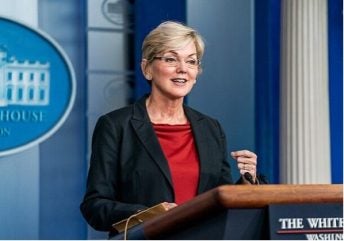
The US Department of Energy (DOE) has announced a solicitation to fund up to $900m to support the initial US deployment of Generation III+ small modular reactor (SMR) technologies in two tiers of funding. Plans for the funding were initially announced in June.
DOE said the funding, made possible in part by President Biden’s Bipartisan Infrastructure Law, will help to strengthen the US domestic nuclear industry. It will also spur follow-on reactor projects, which are vital to achieving clean energy and climate goals and meeting the growing demand for clean, reliable power. Applications are due by 17 January 2025.
DOE offers funding in two tiers:
- Tier 1: First Mover Team Support, managed by the Office of Clean Energy Demonstrations (OCED), plans to provide up to $800m to support up to two first-mover teams of utility, reactor vendor, constructor, and end-users or power off-takers committed to deploying a first plant while at the same time facilitating a multi-reactor, Gen III+ SMR orderbook.
- Tier 2: Fast Follower Deployment Support, managed by the Office of Nuclear Energy (NE), plans to provide up to $100m to spur additional Gen III+ SMR deployments by addressing key gaps that have hindered the domestic nuclear industry in areas such as design, licensing, supplier development, and site preparation.
“Revitalising America’s nuclear sector is key to adding more carbon free energy to the grid and meeting the needs of our growing economy – from AI and data centres to manufacturing and healthcare,” said US Secretary of Energy Jennifer M Granholm. “Thanks to the President and Vice President’s Investing in America agenda, the nation’s nuclear industry is poised to lead the world in innovative advanced reactor technologies, which will create high-paying jobs while providing the flexible and reliable clean energy we need to support a thriving clean energy future.”
John Podesta, Senior Advisor to the President for International Climate Policy, said: “Next-generation nuclear energy will play an important role in building the clean power sector of the future,” said “Today’s funding will boost American innovation, bolster our national security, and tackle the climate crisis.”
White House National Climate Advisor Ali Zaidi noted: “All across the country, we are seeing a muscular resurgence in American energy innovation – from bringing back previously shuttered nuclear plants to bringing online new technologies and new reactors.”
DOE estimates the US will need approximately 700-900 GW of additional clean, firm power generation capacity to reach net-zero emissions by 2050. Nuclear power is seen as a proven option that could be deployed to meet this growing demand.






